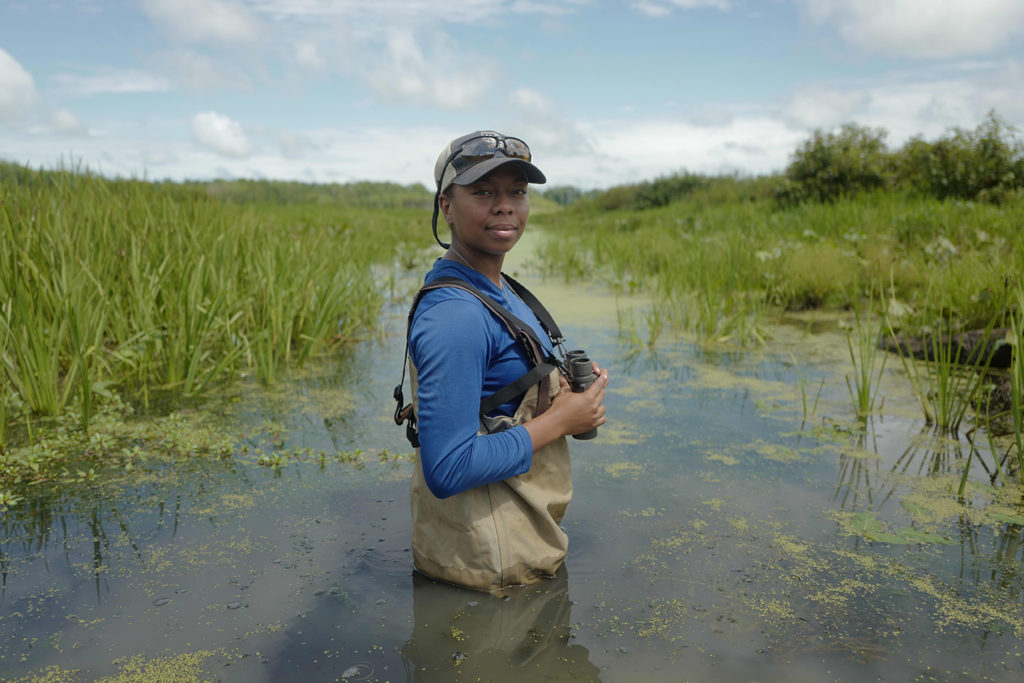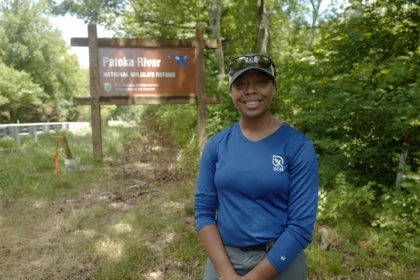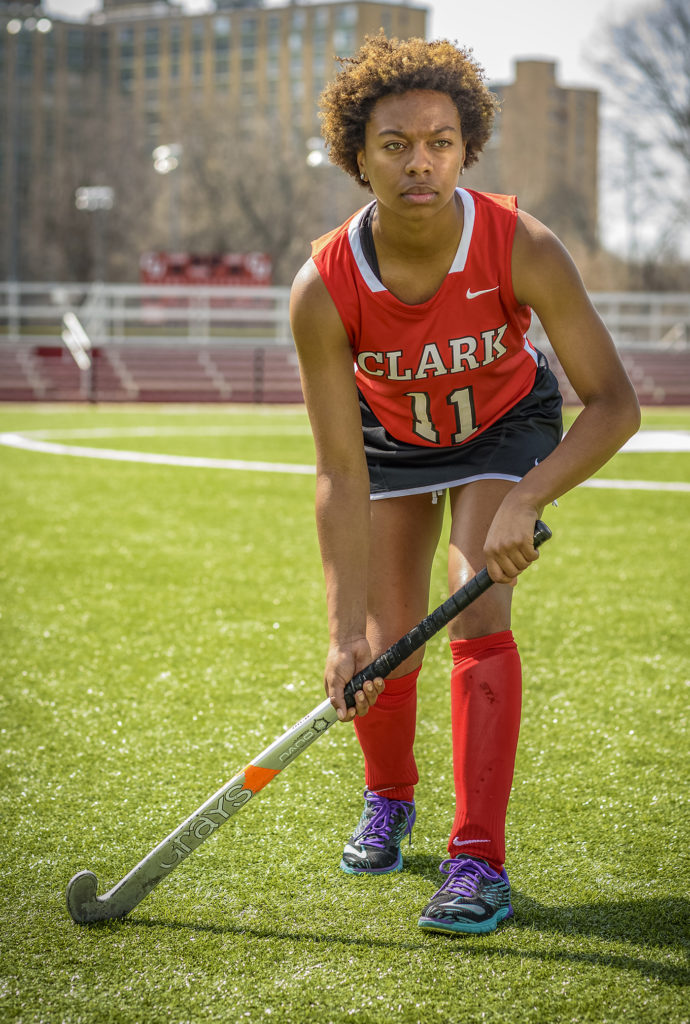Into the woods with Olivia Barksdale

Olivia Barksdale ’19 found herself knee-deep in mud and muck this summer. To some college students, that might not be an ideal way to spend school break, but for Barksdale, it was all part of her master plan.
The student-athlete has used her time at Clark University not only to play two sports — field hockey and softball — but also to gain experience in natural resource conservation. Someday, she hopes to work full time for the U.S. Fish and Wildlife Service.
“I love learning about every aspect of the environment,” says Barksdale, an environmental science major and geography minor who grew up in Fort Washington, Md. “I have developed a passion for forest and wetland ecosystems.”
She’s off to a good start. As part of the federal agency’s career development program, the Traina Scholar interned this past summer at the 9,000-acre Patoka River National Wildlife Refuge in southwestern Indiana. The refuge’s grasslands and wetlands provide cover for more than 250 species of birds, including bald eagles and endangered barn owls and least terns. Only about 8,000 of the migratory least terns — at 8 to 9 inches long, the smallest terns in North America — remain in the wild.

“I learned about all of the operations it takes to run a wildlife refuge,” Barksdale says, “and I loved it.”
She spent most of her days in what many would call a swamp; nature lovers, however, call it an ideal spot for bird-watching.
Barksdale’s typical day? Arriving at 7:30 a.m. and then heading out to clear and mow trails, cut fallen trees, clear invasive plants, assess newly acquired land, or adjust the wetlands’ water levels to encourage the growth of plants for hosting migratory ducks and shorebirds. She even introduced fledging barn owls to the wild.
“Some nights I would work after sundown, counting bats as part of a national survey or checking owl boxes,” she says.
This wasn’t Barksdale’s first experience with conservation. In summer 2017, through the Student Conservation Association, she interned for the U.S. Fish and Wildlife Service’s St. Croix Wetland Management District in Wisconsin. In summer 2016, she volunteered for the U.S. Environmental Protection Agency. And last spring, she studied abroad at the CIEE Global Sustainability and Environment Program in Berlin.
In her coursework, Barksdale has “walked the walk” of environmental conservation. Through a directed study with Clark Biology Professor John Baker, she surveyed the environment of freshwater pearl mussels in Massachusetts. And she took to the trails in Baker’s Problems of Practice course, Small-Scale Land Conservation in Massachusetts, where she learned how to monitor preserved land and prepare state-mandated annual conservation restriction reports. Barksdale and her classmates focused on six parcels in Petersham, hiking the land with conservation officials to observe how it had changed over a year, particularly due to human encroachment. They produced annual reports about six land parcels for review by the town and state.

“It was fun going out in the field and then reading and learning about conservation on a local scale,” Barksdale says. “I’ve experienced conservation at the federal level, so it was nice getting a well-rounded picture and seeing how different agencies and communities monitor important land.”
This fall, she has returned to the class as a teaching assistant. “I am helping Professor Baker on the hikes, and I am a general resource for the students,” she says.
Barksdale feels lucky to have landed at Clark. “I chose Clark because I was able to play two college varsity sports,” says the co-captain of the field hockey team. “Clark was the only school that afforded me that opportunity plus substantial financial aid. Once I moved past athletics, I looked into academics and saw that Clark had a great geography department.”
She’s discovered that athletics have helped her with academics. “Playing sports at Clark has helped me to grow both as a student and as a person. I have become more independent, self-reliant, and highly motivated.”
After graduation, Barksdale will get her exercise in the wild, where she likes to hike and backpack. She’s applying to graduate programs in natural resource conservation and also for AmeriCorps and field-based internships.
She finds satisfaction in her chosen path. “It’s a great feeling to know that the lands I’m working hard to protect will be there for future generations to learn about and appreciate.”


